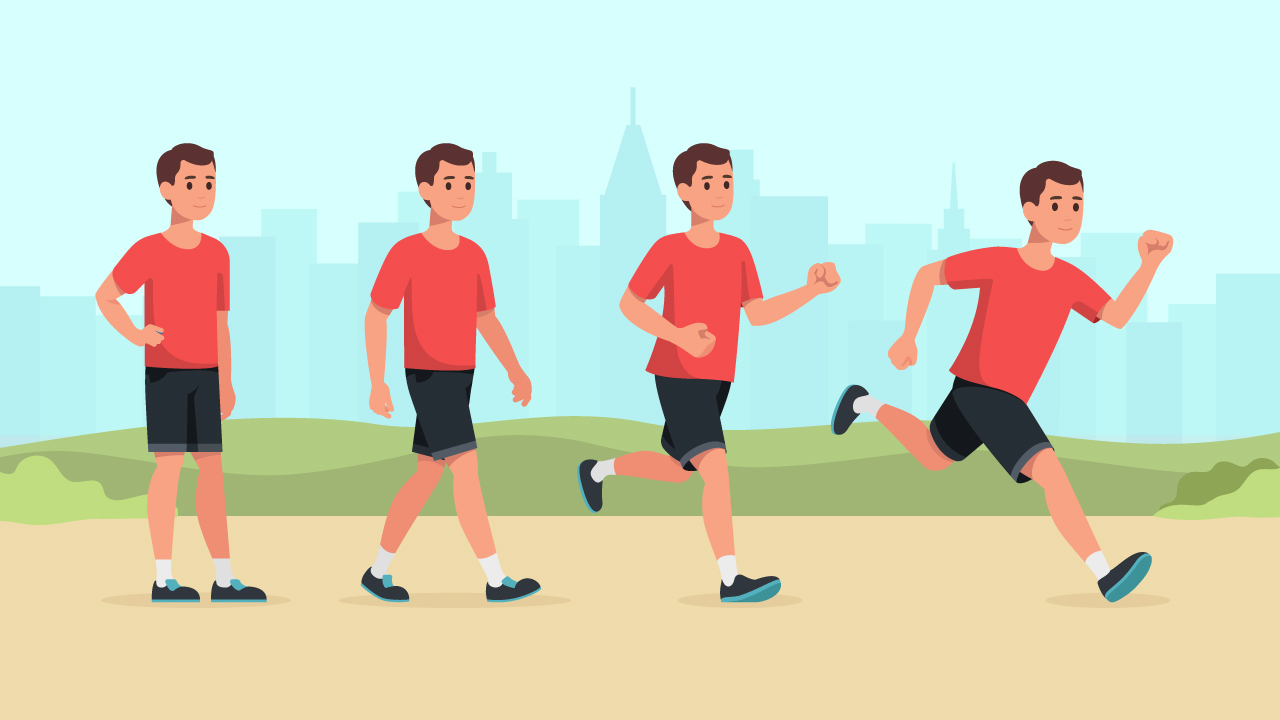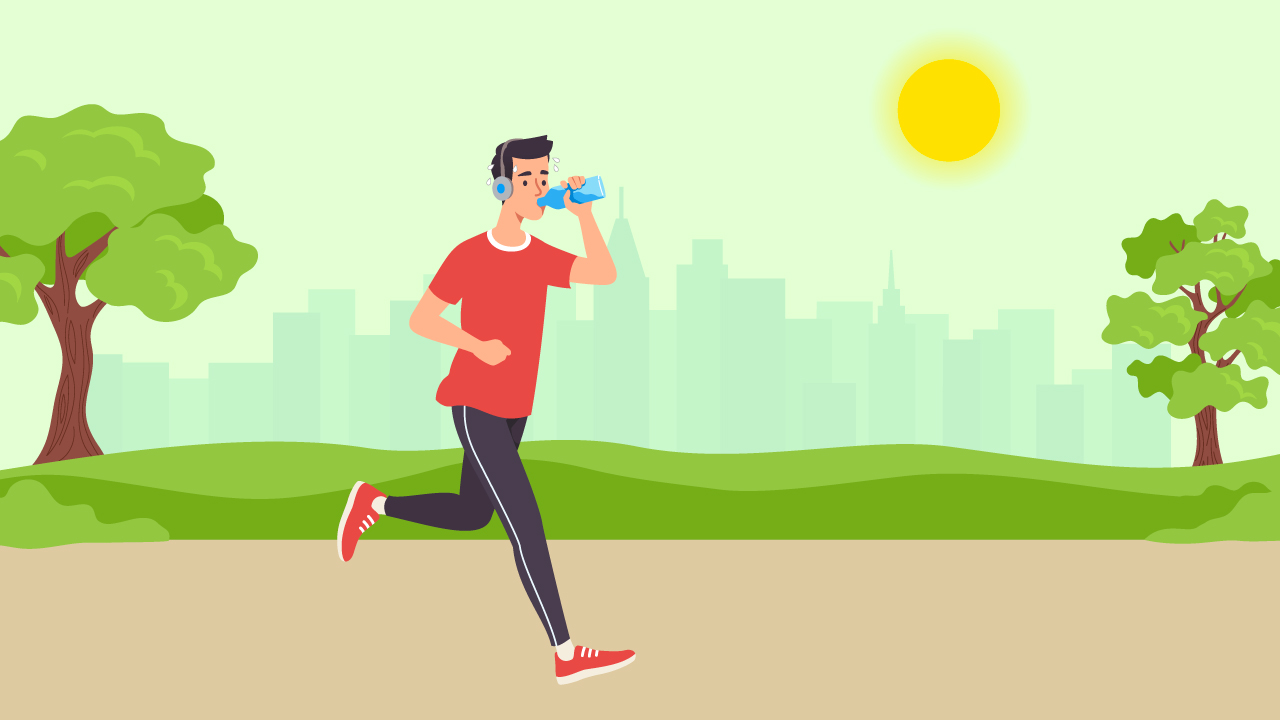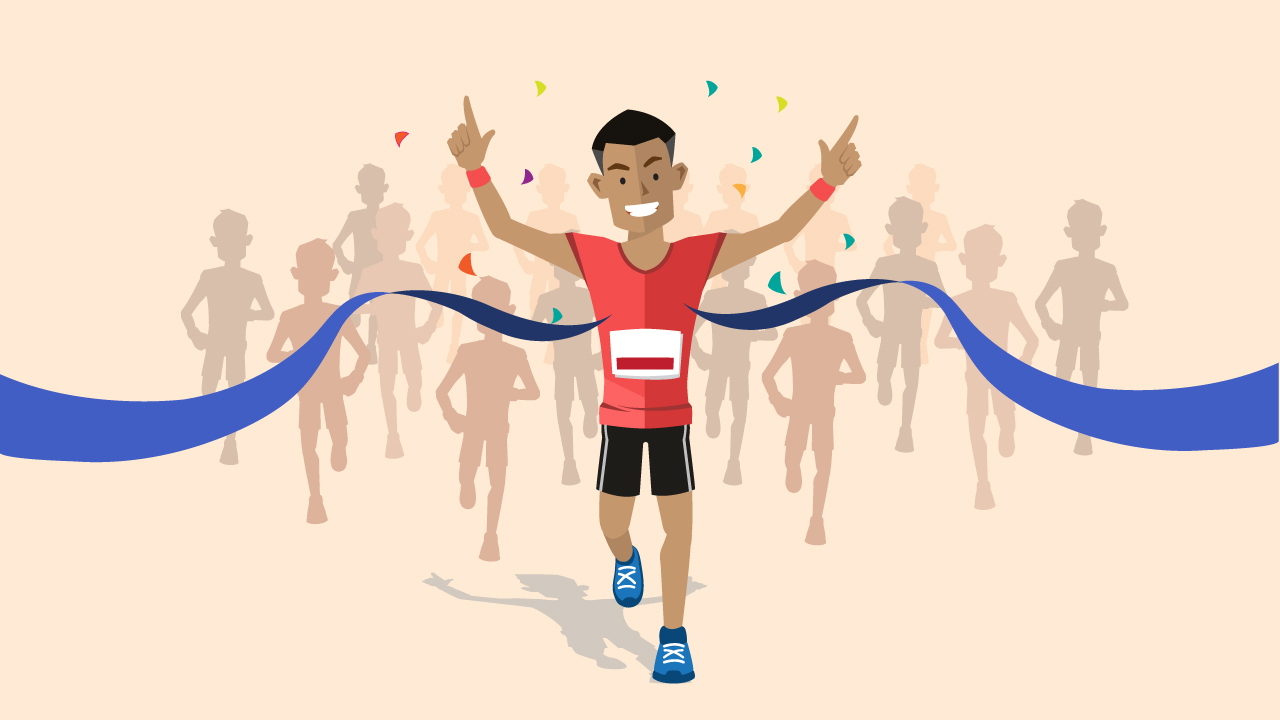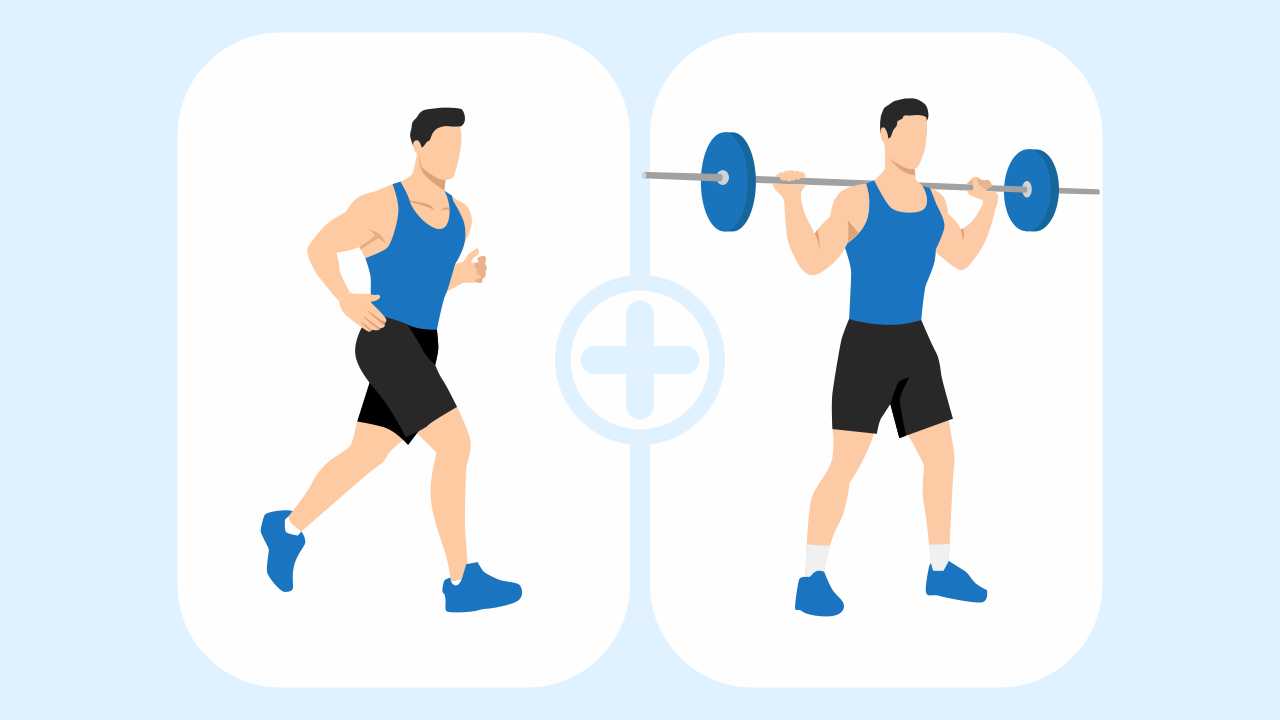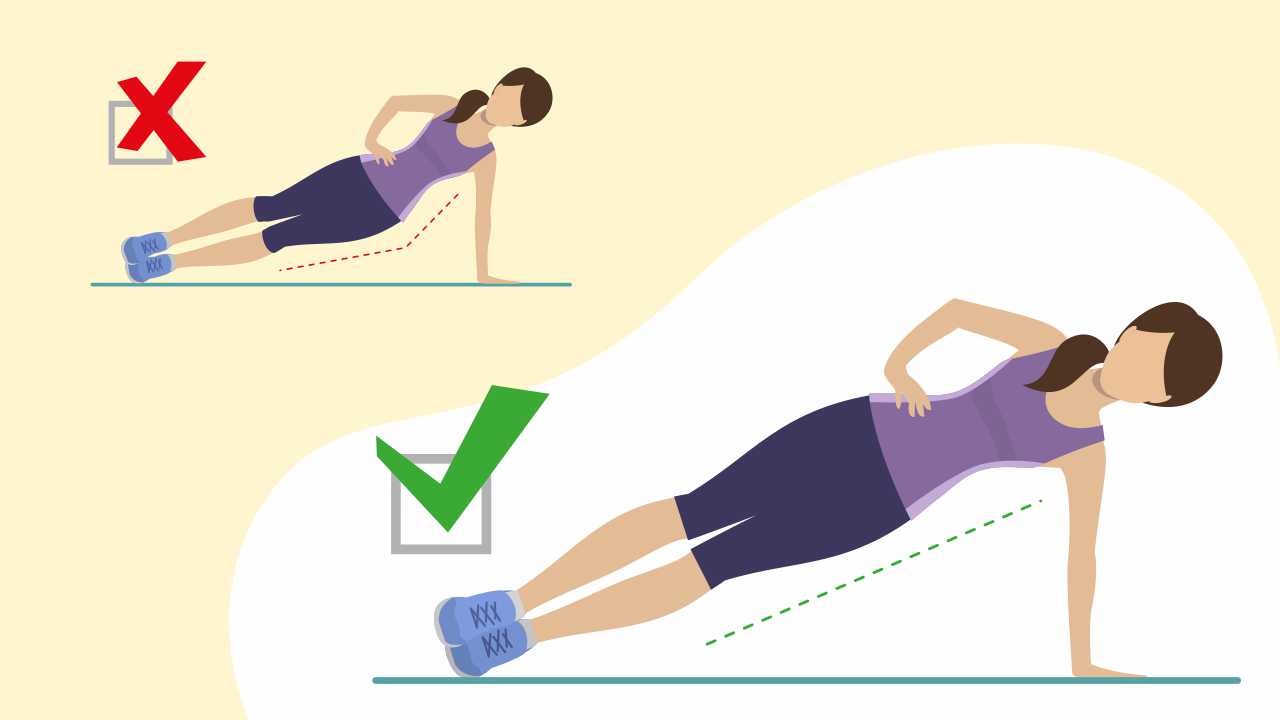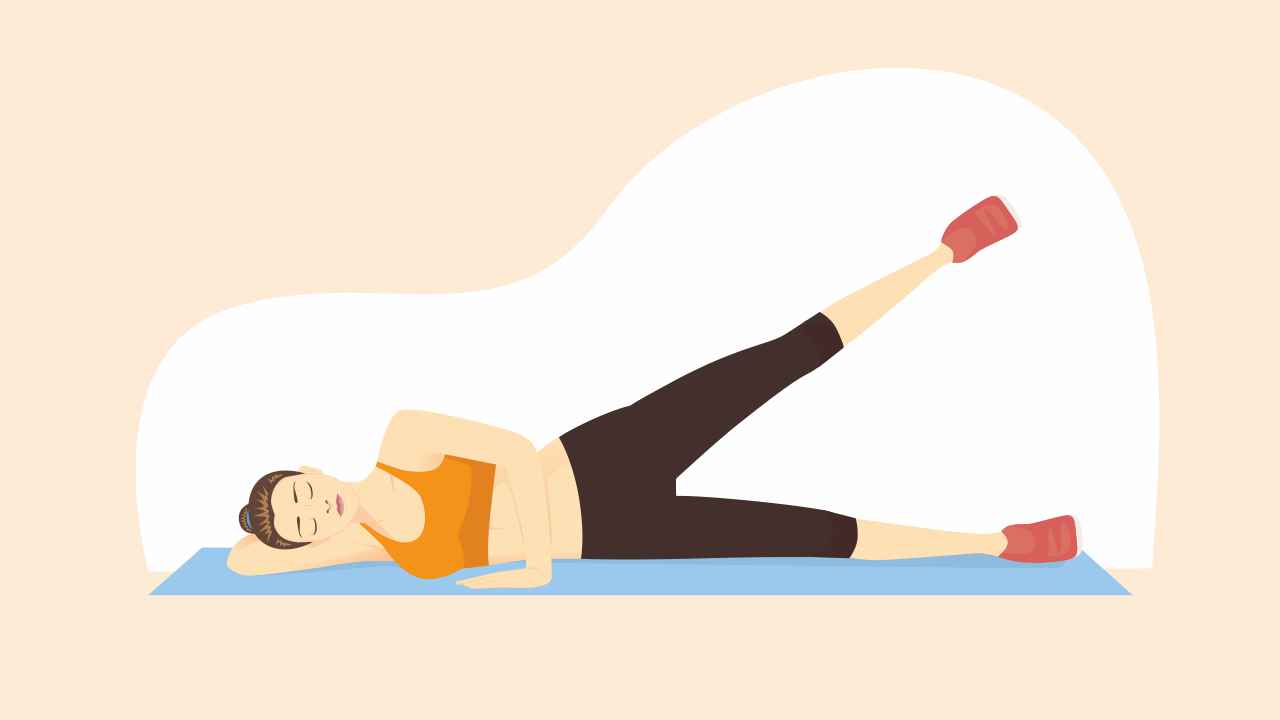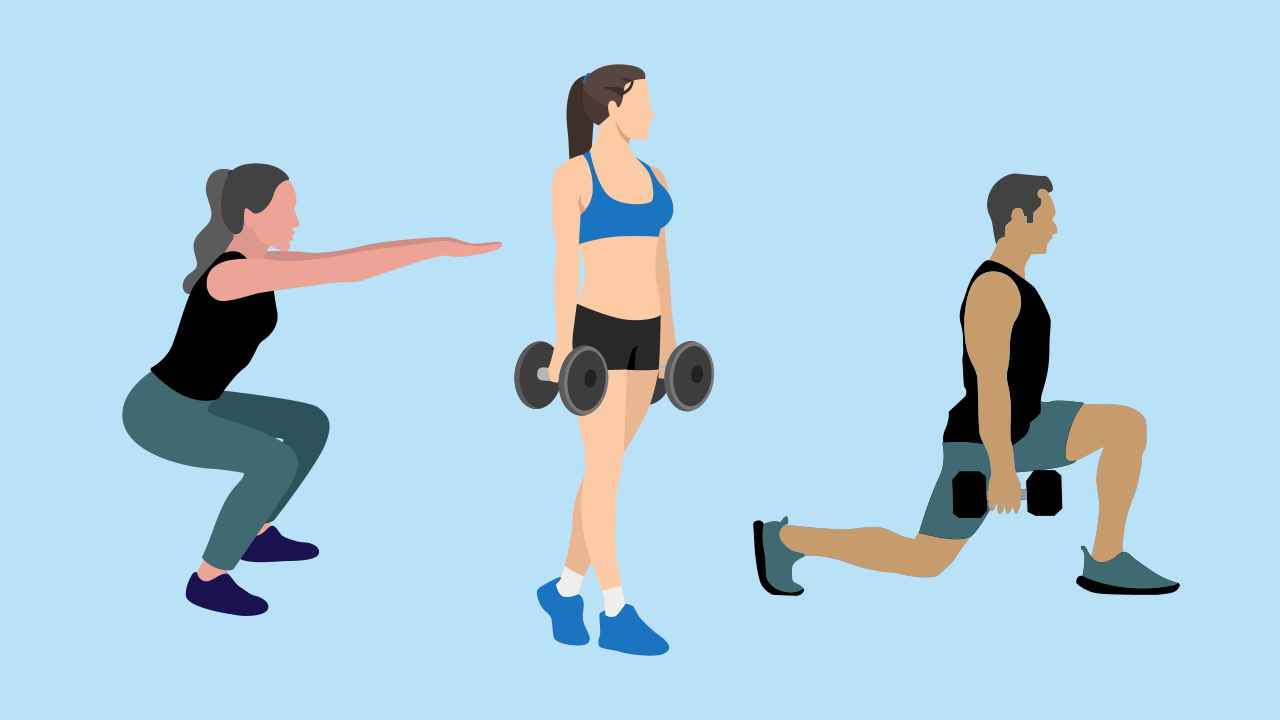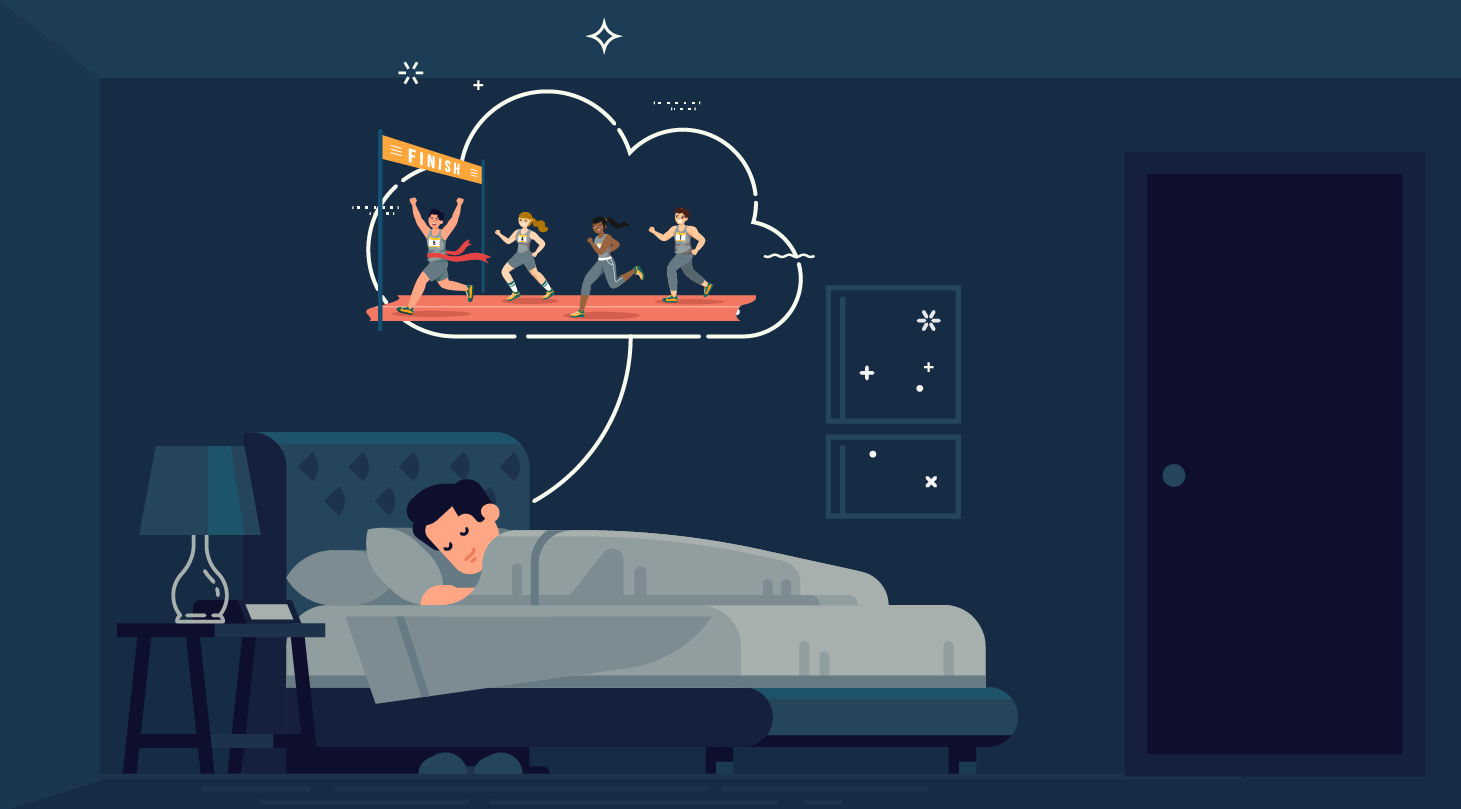
What Role Does Sleep Play in Physical Performance?
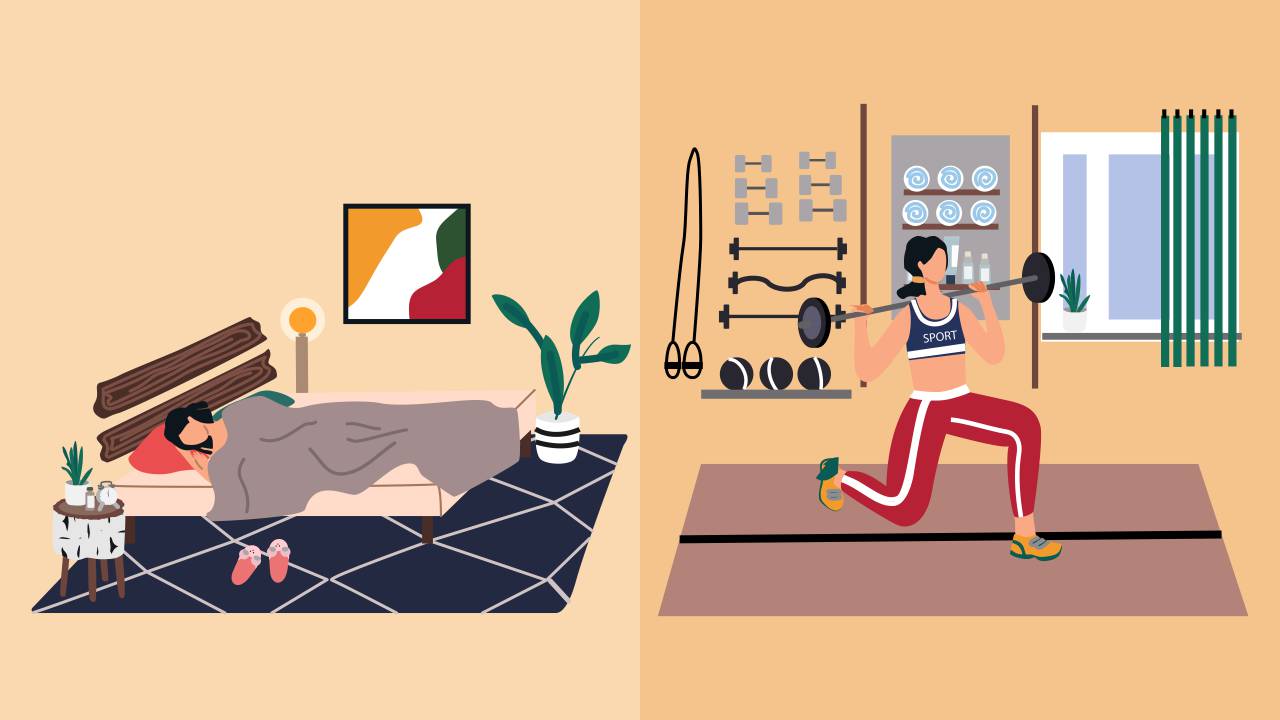
There has always been a yin–yang relationship between physical performance and recovery. For as long as there has been research around how to optimize physical performance, there has also been research on the best strategies to optimize recovery. It has been found that there is no better recovery strategy than sleep.
How much should one sleep?
Despite the many decades of sleep–based research, the age-old question, “how much sleep do I actually need?” remains. Both short (<4 hrs) and long (>8 hrs) sleep durations have been associated with an increased risk of type-2 diabetes and coronary heart disease, as well as with daytime drowsiness. So, how much sleep is recommended?
Let us break the answer to this question down into a few components that affect physical performance — cognitive function and muscle function — to get a better understanding of how much sleep we need.
Cognitive function
Cognitive function is vital for physical performance for both general and elite athlete populations. In this instance, it encompasses problem-solving ability, decision making, memory, mental flexibility, and pre-planning. If cognitive function is poor, then you may experience lapses in concentration or find it difficult to make quick decisions, which may worsen your ability to execute a particular skill.
In older adults (aged >65 years), there is some evidence that <3-4 of sleep and >10 hours of sleep per night may be related to cognitive function decline. As such, around seven hours of sleep per night seems adequate for healthy cognitive function in older adults. Similarly, this also seems applicable for healthy adults (aged >45 years), for adults aged between 30-45 years, and for young adults aged <30 years. You can use the inverted-U hypothesis to understand how our cognitive function responds to the continuum of sleep, as illustrated in the figure below.
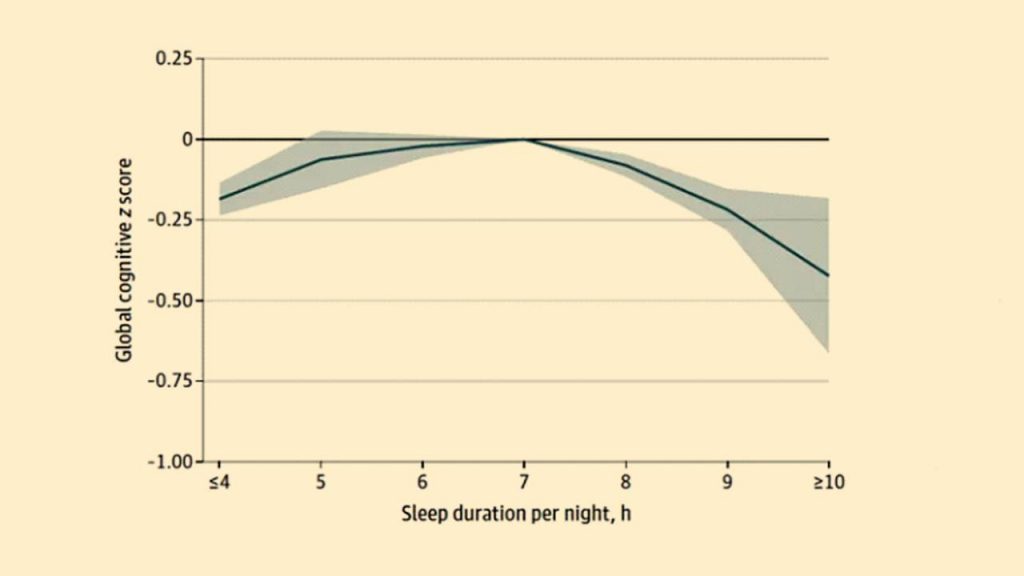
The inverted-U hypothesis shows that approximately seven hours of sleep is considered optimal for healthy cognitive function, whereas less or more hours of sleep seem to reduce cognitive function.
Muscle function
Now, we will refer to muscle function in relation to strength levels, growth, and repair. Inadequate sleep (<7 hours) impairs muscle strength and prevents adequate recovery from exercise–induced muscle damage. Thus, inflammation may remain high and disrupt the natural muscle repair processes, causing you to feel sore or stiff after waking up. Additionally, if you consistently get less than seven hours of sleep per night, metabolic processes that govern the growth of cells, as well as the breakdown, and utilization of glucose (which is one of your body’s primary fuel sources), may get disrupted.
Does muscle grow when you sleep?
Absolutely, muscles repair and grow while you sleep. However, there are different processes that occur during the various stages of sleep.
Let us first look at the stages of sleep. There are two types of sleep, namely Non-Rapid Eye Movement sleep (NREM), which is divided into four stages, and Rapid Eye Movement sleep (REM), which is stage five.
Specifically, stage one sleep is light sleep, and generally lasts for a few (one to seven) minutes, whereas stage two usually lasts from 10 to 20 minutes. The individual then moves to stage three and finally into stage four sleep, that of deepest sleep, where functions such as blood pressure, breathing rate, and heart rate reduce. Stage four NREM sleep generally lasts for about 20 to 40 minutes in the first cycle. After 30 to 40 minutes, REM sleep begins. The brain reactivates into a fast activity state, where blood flow, heart rate, breathing rate, body temperature, and blood pressure increases.
Thus, a lot of the removal of muscle metabolites and restoration of muscle tissue occurs during NREM-sleep (stage 3 and 4). In addition, human growth hormone (hGH), which is a hormone responsible for increasing anabolic (muscle building) processes, is released during these NREM-sleep stages, too.
| Sleep Stages | Type of Sleep | Other Names | Normal Length | Key Function |
| Stage 1 | NREM | N1 | 1-7 minutes | The body and brain activities start to slow with periods of brief movements (twitches) |
| Stage 2 | NREM | N2 | 10-20 minutes | Brain activities slow even further. The person enters a subdued state, which generally coincides with a drop in body temperature, more relaxed muscles, and slowed breathing and heart rates |
| Stage 3 and 4 | NREM | N3,Slow-Wave Sleep (SWS),Delta Sleep,Deep Sleep | 20-40 minutes | This phase is critical to restorative sleep, allowing for bodily recovery and growth. In this phase, there may also be memory storage and critical thinking patterns taking place |
| Stage 5 | REM | REM Sleep | 10-60 minutes | Brain activity picks up during REM sleep. Although dreaming can occur in any stage, during REM sleep, vivid dreaming occurs, which is usually a sign of increased brain activity. Essential stage for learning, creativity and cognitive functions |
How does lack of sleep affect your muscles?
If appropriate sleep length improves muscle tissue growth and repair, lack of enough sleep does the exact opposite. During periods of insufficient sleep (<3–4 hours per night), the production of hGH is impaired, and your sensitivity to insulin lowers. Insulin affects glycogen metabolism that may lead to your muscles finding it difficult to break down and utilize glycogen, lowering your energy availability overall.
Sleep deprivation may also cause delayed central nervous system processes. This may contribute to poorer communication between your brain, spinal cord, and muscles, as well as a reduced ability to recruit (activate) certain muscle fiber types; mainly, fast twitch (explosive) muscle fibers. Furthermore, brain-to-muscle incoordination and cognitive declines caused by sleep deprivation may negatively affect balance and agility.
If individuals suffer from sleep loss during the night, it is advisable to make up for lost sleep through afternoon napping. Evidence suggests that 30 minutes of post-lunch napping may benefit alertness, sprinting speed, short-term memory, and may also lower heart rate, while longer nap lengths (90 minutes) may improve muscle repair processes.
References
1. Steptoe A, Peacey V, Wardle J. Sleep duration and health in young adults. Arch Intern Med 2006; 166: 1689–92.
2. Devore EE, Grodstein F, Schernhammer ES. Sleep duration in relation to cognitive function among older adults: a systematic review of observational studies. Neuroepidemiology 2016; 46: 57–78.
3. Ma Y, Liang L, Zheng F, et al. Association Between Sleep Duration and Cognitive Decline. JAMA Netw Open 2020; 3: e2013573.
4. van Oostrom SH, Nooyens AC, van Boxtel MP, et al. Long sleep duration is associated with lower cognitive function among middle-age adults–the Doetinchem Cohort Study. Sleep Med 2018; 41: 78–85.
5. Knowles OE, Drinkwater EJ, Urwin CS, et al. Inadequate sleep and muscle strength: Implications for resistance training. J Sci Med Sport 2018; 21: 959–68.
6. Walsh NP, Halson SL, Sargent C, et al. Sleep and the athlete: narrative review and 2021 expert consensus recommendations. Br J Sports Med 2021; 55: 356–68.
7. Venter RE. Role of sleep in performance and recovery of athletes: a review article. South African Journal for Research in Sport, Physical Education and Recreation 2012; 34: 167–84.
8. Chandrasekaran B, Fernandes S, Davis F. Science of sleep and sports performance–a scoping review. Science & Sports 2020; 35: 3–11.
9. Waterhouse J, Atkinson G, Edwards B, et al. The role of a short post-lunch nap in improving cognitive, motor, and sprint performance in participants with partial sleep deprivation. J Sports Sci 2007; 25: 1557–66.
10. Romdhani M, Souissi N, Chaabouni Y, et al. Improved Physical Performance and Decreased Muscular and Oxidative Damage With Postlunch Napping After Partial Sleep Deprivation in Athletes. Int J Sports Physiol Perform 2020; 15: 874–83.

